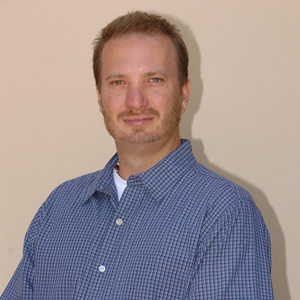Coastal Ecology Under Attack
Invading Nonnative Seaweeds Can Upset the Marine Ecosystem

Jayson Smith
Coastal waters and harbors have been invaded by nonnative seaweeds. Is this an ominous portent for the ecology or just more food for the native marine herbivores?
Cal State Fullerton marine biologist Jayson Smith focuses on answering that question. So far, disturbing results have come in: Native seaweeds off the coast should be considered under assault because native herbivores mostly prefer to eat the native seaweed, leaving the invaders without natural predators and free to proliferate, said the researcher.
Smith’s research is funded by a two-year, $106,108 USC/California Coastal Conservancy grant. Steven Murray, dean of the College of Natural Sciences and Mathematics, is co-recipient of the grant.
“These nonnatives got here in a variety of ways,” Smith said. “They get in on the hulls of ships and in aquariums dumped into rivers and the ocean. They’re also attached to imported oysters or used as packing to keep the oysters moist, then dumped overboard.
“When nonnative seaweeds overtake native species, they seriously disrupt the ecosystem, causing loss of species diversity,” he said. “San Diego encountered a similar problem eight years ago that took a concerted effort and more than $6 million when the so-called ‘killer algae,’ Caulerpa, invaded. That human impact on our coastal ecosystem captured my interest when I was getting my master’s in biological science here at Cal State Fullerton, and I have studied those impacts since.”
Smith’s research focuses on four invasive species:
• A brown seaweed, Sargassum, common now in intertidal pools, as well as out past the intertidal zone;
• A less-common strain of Sargassum found off Santa Catalina Island and parts of San Diego and Mexico;
• Undaria, a brown kelp common in harbors and a common invader in many parts of the world;
• The red algae Caulacanthus, common throughout the intertidal zone.
Smith earned his bachelor’s degree in biology with a concentration on marine biology at UCLA, where he also earned his doctorate in ecology and evolutionary biology in 2005. He has been a full-time lecturer at Cal State Fullerton since 2005.
Photo:
Available online at www.fullerton.edu/newsphotos
Media Contacts:
Jayson Smith, College of Natural Sciences and Mathematics, 657-278-4233 or jasmith@fullerton.edu
Russ L. Hudson, Public Affairs, 657-278-4007 or rhudson@fullerton.edu
